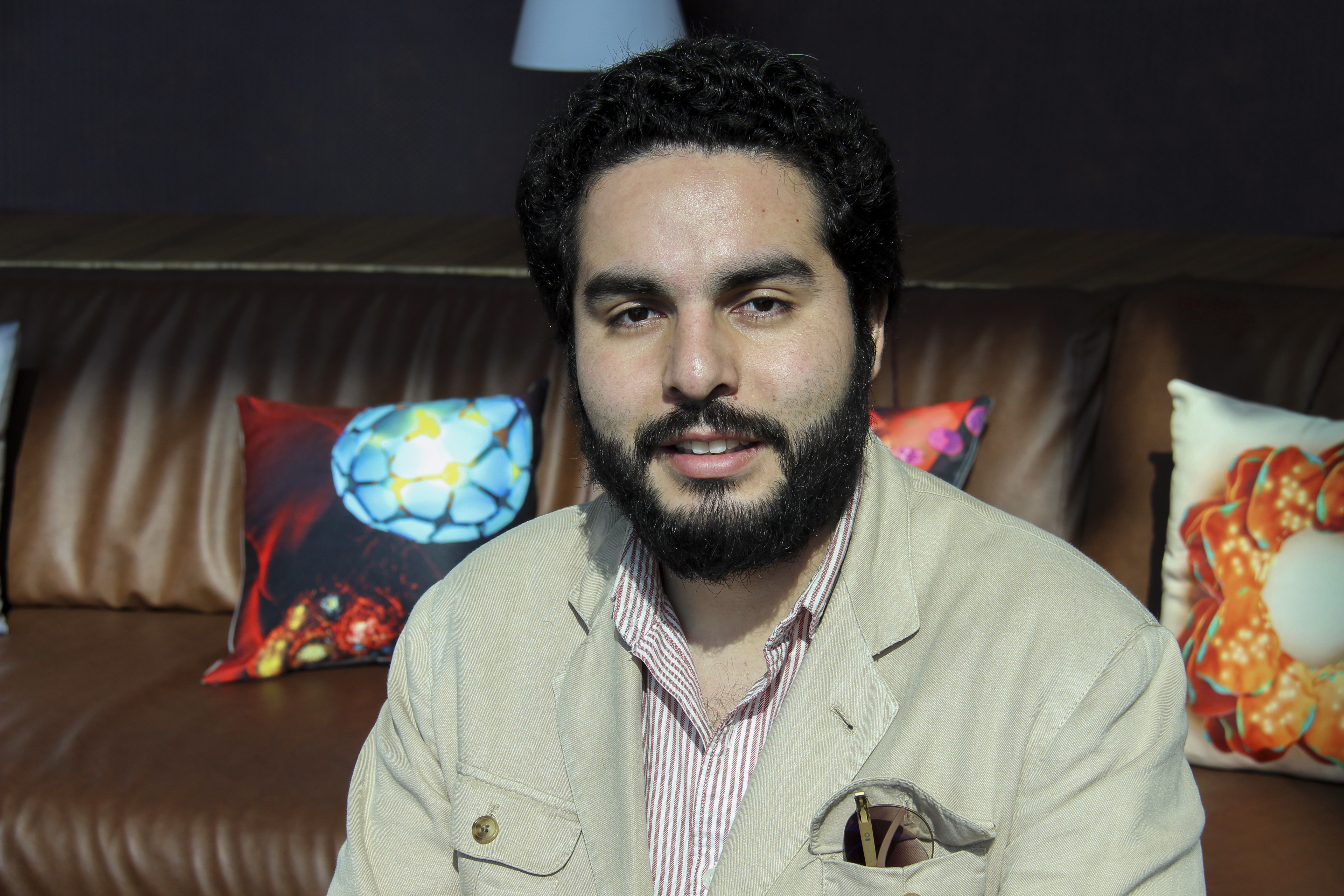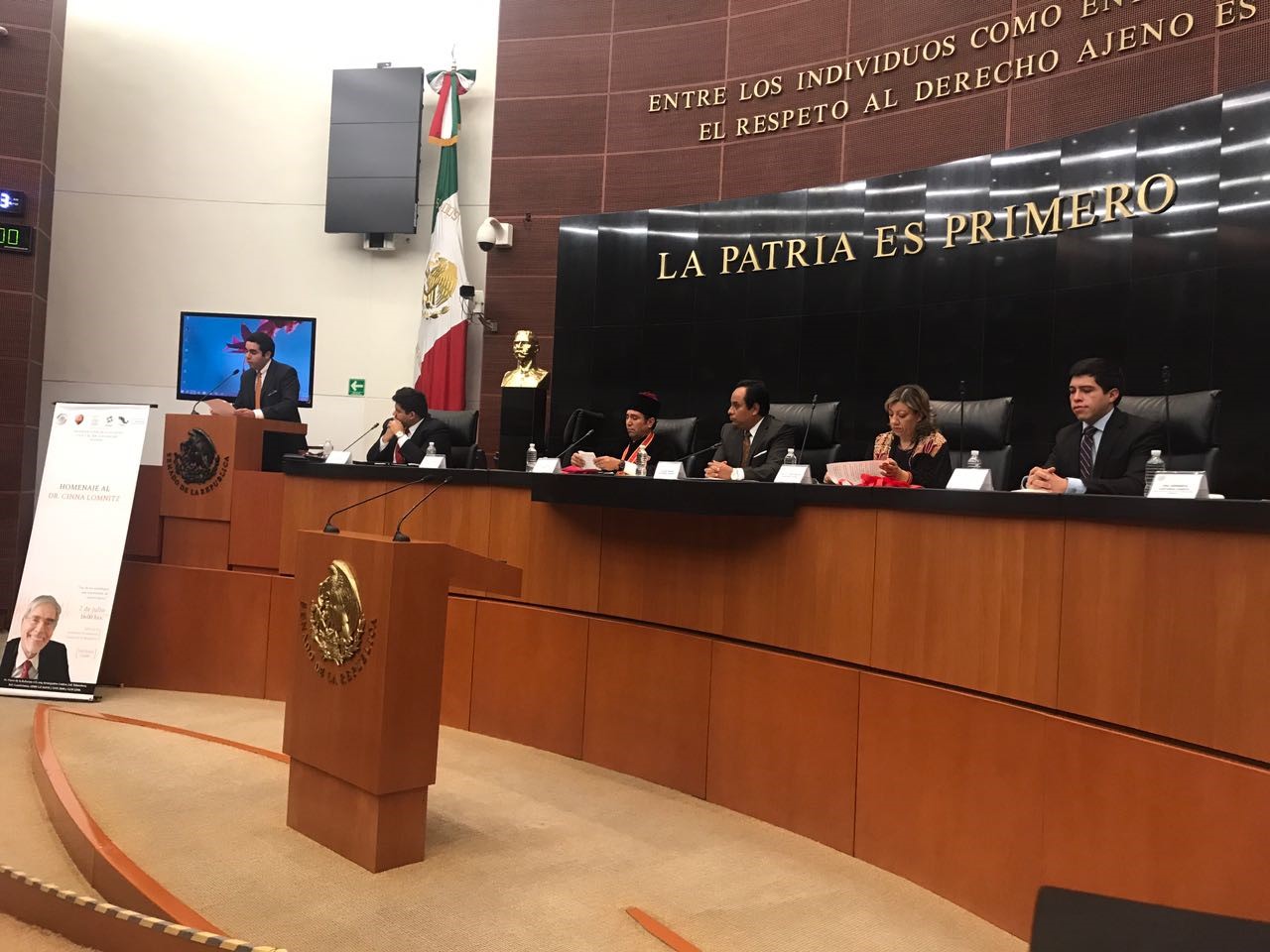KAUST student receives prestigious Mexican award

Parsifal Islas Morales, a master's degree student in the University's Reef Genomics Lab, was awarded the Cinna Lomnitz Medal in recognition of his outstanding science communication work in his native Mexico. Photo by Meres J. Weche.
-By David Murphy, KAUST News.
Parsifal Islas Morales, a master's degree student in the University's Reef Genomics Lab, was awarded the Cinna Lomnitz Medal by the Mexican parliament in recognition of his outstanding science communication work in his native Mexico. The Cinna Lomnitz Medal was established in 2017 in memory of the famous Mexican seismologist Cinna Lomnitz to award outstanding contributions of young Mexicans to science, culture and human rights.
Islas Morales was awarded the Medal in Science last year in Mexico City during an honorary session of the Mexican Senate.
"Cinna Lomnitz was one of the greatest Mexican scientists. The Rincon Gallardo Foundation and the Mexican Senate wanted to continue his legacy by awarding young leaders in relevant subjects, from human rights to environmental awareness and science. I was very honored to receive the Medal in Science and meet very talented people who are making great things for Mexico. I see the medal as a recognition to my team in 'Pa'Ciencia la de Mexico' for our passion and commitment towards scientific culture in Mexico," Islas Morales said.

Parsifal Islas Morales, a master's degree student in the University's Reef Genomics Lab, was awarded the Cinna Lomnitz Medal by the Mexican parliament in recognition of his outstanding science communication work in his native Mexico. Photo courtesy of Parsifal Islas Morales.
Creating a greater awareness of science in Mexico
Islas Morales, who describes himself as a curious, academic individual who derives particular enjoyment from the enriching perspectives found between disciplines and cultures, obtained his undergraduate degree in biology from the Universidad Nacional Autonoma de Mexico (UNAM). His thesis was in collaboration with KAUST and was focused on the cell architecture of giant bacteria E. fishelsoni from the Red Sea.
In 2012, Islas Morales convinced a group of colleagues at UNAM to create an association devoted to science communication called "Pa'Ciencia la de Mexico." Their goal was to create a greater awareness and understanding of the science being created and the scientific culture in Mexico with the country's policymakers and the wider Mexican society. The other primary focus of the group is to share how scientific knowledge is produced and how critical scientific thinking can be incorporated into everyone's lives.
"We founded our organization 'Pa'Ciencia la de Mexico,' as we were convinced that science communication is crucial to convince people and politicians of the importance of scientific research in our country. Once we established goals and a robust methodology with colleagues from the faculty of philosophy at UNAM, who were experts in science communication, we decided to ask for governmental grants," Morales noted.
"After this project, we got a grant from the Mexican Institute of Youth (IMJUVE). IMJUVE create scientific communication events in rural areas. This experience was very nice, and soon we realized that digital tools like social media could build an important connection between young social entrepreneurs in remote places," he added.
"Nowadays, we are involved in different initiatives. We like to connect specialists from academia with communities. We offer courses to schools, municipalities and social organizations, and we participate together with UNAM and other universities in scientific communication events. In the future, we expect to expand our network of collaborators and attract industries to play a role in scientific communication along with universities and students," Morales outlined.
Research at KAUST
At KAUST, Islas Morales is studying for his master's degree in marine science under the co-supervision of KAUST Associate Professor Christian Voolstra and Professor Luis Jimenez Garcia from UNAM. The research group focuses on the origin and evolution of the nucleolus—the organelle where complex eukaryotic cells express and mature ribosomes. The group is also studying ancient nucleoli from primitive microorganisms with powerful microscopic tools.
"The possibility of doing cutting-edge research in an environment that I believe is unique in the world has been a scientific paradise. I have found the support of my adviser to do curiosity-driven research and to take risks to propose new ideas," he said.
"I particularly like the international aspect of our community and the opportunity to learn from the richness of Arab culture. I have enjoyed participating in on campus cultural events, and I think these events make us more human and build a real universal culture within the University. I have also matured a lot at KAUST—both academically and professionally. Big projects are the product of teamwork, which involves much more than knowledge, patience and organization, for instance," Morales added.
Future goals
Morales has a keen sense of his future—a future that he believes will not always be contained by the four walls of a laboratory.
"I am interested to continue a research career, but I want to be a scientist who does not stay solely in the lab. I enjoy gaining experience in scientific policy and social engagement—I think this is a key aspect to be able to promote interesting projects between academia and society. At KAUST, I have realized that science is more human than usually thought because science itself is its own cultural environment. Science is an environment which we have to master and connect with the culture of our societies," he concluded.

